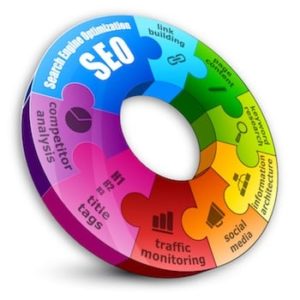4 SEO Things You Need to Do and 4 SEO Things You Never Do

The all-important first rule of non-existence…
The single most important thing that we all need to know is that a website will, for the most part, live or die by good or bad Search Engine Optimization. SEO is essential for your website to be found by Internet users, including prospective patients. And without it, your double-whammy penalty is that:
(a) you, your website and your Internet presence don’t exist, and
(b) would-be visitors go directly to your competition.
SEO the ongoing process of connecting with, and increasing, visitor traffic. It is one of the most cost-effective techniques available. And with visibility and traffic, SEO fuels brand awareness. But there are some SEO things you gotta do…and some things you never wanna do.
First, the SEO things that you gotta do…
The confounding part of playing to win at SEO is that Google (the biggest search engine) will not reveal how their algorithm works or the exact rules in play. Nevertheless, SEO experts recognize dozens (actually hundreds) of factors that influence positive and negative changes on a keyword query search engine results page (SERP).
That said, experts from the Google’s search world provide some definite things to do to help SERP visibility. The top things to definitely do include:
Plan SEO with the initial design. If search optimization is neglected or treated as an afterthought, the website will be a poor performer (even if it looks “pretty.”) Design and build a web presence—from the earliest possible stage—that can be easily found by search engine spiders and ultimately useful and appreciated by (human) visitors.
Use exactly the right words. These words represent the vocabulary that a visitor would use in an Internet search to locate matching websites that answer their interest. Keywords (including phrases and expressions) must be used on the site pages and honestly and accurately be part of the content.
Provide authoritative and compelling content. Google feels responsible to its search engine customers to find and deliver search results that are accurate and authoritative. Thus they actively screen results that may be misleading, fake news, or otherwise problematic. Good quality, compelling content that matches the visitor’s search intent, is important to SEO.
Create quality, and accurate, titles and descriptions. The search process finds and interprets SEO elements on the website that the visitor doesn’t see. These include page titles and descriptions, title tags and meta descriptions, and other signals to the search engine about the content.
And the SEO things that you should never do…
Just as there are hundreds of SEO “gotta do” items, there's a nearly endless list of nasty, ugly, rock bottom bad guy errors to avoid. Let’s assume that everyone understands that the deliberate repetitious and “keyword stuffing” in web text is a loud NO-NO.
With that as a universal mistake, and with the understanding that this is only a partial list, please DO NOT make the following mistakes. In no particular order:
Ignore the shrink to mobile devices. The Google world begins with the small screen. Search engines assume that smartphones and other mobile devices are the users’ first choice, so mobile SEO and indexing is the proper first consideration. Every website needs to be built as a responsive or dynamic site, detecting the appropriate display for mobile first.
Never check your load speed. Visitors are impossibly impatient—visitors will abandon you in a heartbeat. If your once-speedy website has become bloated and too slow to load, it impacts search results and nearly half of your visitors will be gone after six to 10 seconds.
Don't duplicate content. That's deadly. Google hates to find the same or similar content in more than one place. Deliberately or inadvertently, duplicate content cannot appear within the same website or from another website. And Google is smart enough to detect an overlap. Post only original, useful and authoritative material that adds value to the visitor.
Always avoid analytics. Google provides a free and amazingly robust tool to monitor, measure and report your website’s performance. Unless you’re using Google Analytics, as well as Google Webmaster Tools, you can’t see visitor behavior. Consequently, you’ll never know what works and what doesn’t—or how to improve on marketing goals and deliverables.
As a final bit of advice, take the time to learn about SEO, and understand the importance of SEO for hospitals and private practices. It’s a challenging subject that often benefits from experienced professional help. And that’s something we have to offer. Reach out to us today, and let’s get started.
Related Articles:
5 Common SEO Mistakes to Avoid at All Cost
10 (Relatively) Easy SEO Tips for Better Healthcare Marketing
The Perils of SEO Over Optimization
Learning Search Engine Optimization: Elementary Lessons for Doctors
How Healthcare SEO Has Changed The Past Decade and What’s Ahead









